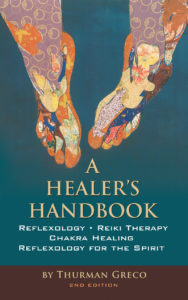Poor Sleep Can Wreck Your Quality of Life
If you let it, POOR SLEEP will leave you feeling tired, confused, and depressed.
Sleep can have many causes. And, that’s one of the reasons we struggle with it. In past blog posts, I’ve written many articles about sleep and here is yet another one. And, there will probably be many more.
However, this article is different from all the rest. In this article, you will learn POOR SLEEP HAS MANY CAUSES. Investigate every one that applies to your situation.
Poor sleep causes fall in several categories.
To begin with, COFFEE, CIGARETTES, AND DIET PILLS are in their own little but potent category.
Is caffeine part of your poor sleep problem? Remember, it is found in many things beyond just the cup of coffee you have in the morning. Try to find them all and banish them from your daily life.
Are your days spent in rooms with DIM LIGHTING? Poor sleep can be the result of this environment. What can you do to remedy this situation? Getting just twenty to thirty minutes of sunlight each day can make a difference.
Do you get enough exercise? MOVING YOUR MUSCLES IS ESSENTIAL to overcoming poor sleep. It comes down to this: You have to move enough to get to sleep at the end of your day. Exercise. Exercise. Exercise.
Do you have one or more HEALTH ISSUES that promote poor sleep patterns? Some diseases make it hard to get to sleep. Others make consistent sleep throughout the night difficult. If sleep apnea, restless leg syndrome, and sinus problems interfere with a good night’s sleep, get treatment for them. The message here is this: Don’t let a medical condition cause your poor sleep.
Finally, we come to SLEEPING PILLS. For me, they are an absolute last resort. Sleeping pills come after you have done everything you possibly can to overcome poor sleep.
Why? Some of these pills create their own problems.
Several herbal remedies and supplements are on the market to combat your poor sleep. Two that come to mind are Melatonin and Valerian.
We don’t really know whether either one of them works because the studies have been sparse and contradictory. The preparations and dosages are varied so that it’s complicated to know how much and when to take either Melatonin or Valerian.
It’s best to take any sleeping preparations under the direction of a professional who knows about the products you are taking. That way, you won’t be wasting your money and you won’t be overdosing.
The BOTTOM LINE here is to encourage you to chase down each and every cause of poor sleep that you can. Deal with each and every cause in your search for blessed sleep.
Thanks for reading this article. Please refer it to your preferred social media network.
Thurman Greco
How Stressed Are You Anyway? 6 Common Responses to Stress and What You Can Do About Them.
How does your stress add up for you? Are you more stressed than usual? Are you more stressed than your friends and family?
Does everything seem to be an emergency? In other words, is your stress becoming out of control? Do you feel as if you need to see a professional for help controlling your stress response?
Is getting back and forth to work stressful for you? Is your work situation stressful? Many of our stress responses can be planned for and, hopefully, controlled.
If you develop the habit of staying tuned to your body, you can become aware of upcoming stress before things get out of control. Your physical body will send you signals. What are they?
DO YOU CLENCH YOUR MUSCLES? This is easy to check out. Begin by checking your body for clenched muscles. Begin at the top of your head and work your way down to your toes. Favorite stress spots for many people are jaws and teeth, neck and shoulders, fists, lower spine, and feet.
DO YOU GRIND YOUR TEETH? Many people do this when they are stressed. This habit carries over to your sleep for some.
DO YOUR HANDS GET COLD? Generally speaking, your cold hands indicate a stressed body. To test whether your hands are cold or not, hold one of your hands on your neck. If it is cooler than your body, you are probably stressed.
ARE YOU SWEATING? It can be that you are overheated. But, sweating can also be an indication that you are stressed. As humans, we sweat when we are in a protection mode. If you find yourself sweating, ask yourself what is causing this situation.
IS YOUR PULSE RACING? If you are not exerting yourself and your pulse is racing, you are most probably stressed. What is happening?
DO YOU REWIND THE SAME THOUGHT ENDLESSLY? This is a common human condition. When we are upset about something, we rewind the same concern for minutes, hours, days. Like a stuck record, we think about the same thing over and over and over.
A good thing to do is realize that you have a situation upsetting you. Once you realize what the cause may be, you can seek a solution.
Can you brainstorm with a friend or colleague to find a solution. For example, you may have a difficult commute to and from work. Can you take a bus or train instead of driving?
It may be that your situation is too much for you to handle alone and you need to seek professional help to identify your stressor and then deal with it. If that is the case, go for it! You will be much better off when you find a solution to your problem.
Meanwhile, there are a couple of generic things you can do which will help until you begin your therapy. These things include
MEDITATION – Spend a few minutes each day meditating . This should help you cope with your situation while promoting a positive attitude. You can take a meditation class or find or write guided meditation focusing on your situation.
Either way, meditation promotes homeostasis which can only help because it promotes the balance of all your body systems.
TAKE INVENTORY DAILY. A good thing to do is to take an inventory daily of the things in your life which might affect you today. This inventory will help you prepare for all the little things which add up to stress. This inventory will include things which are not necessarily major sources of stress. But they are there – waiting to happen. Being aware of them in advance helps.
With a little practice, this inventory can help reduce your stress levels daily. More tips will follow in future blog posts. Your goal is to try them out and choose the ones which work best for you.
Thank you for reading this article. Please refer it to your preferred social media network.












